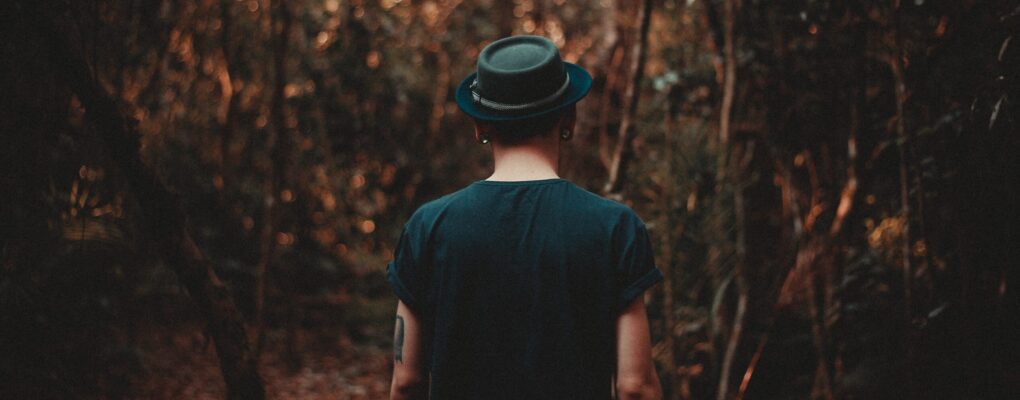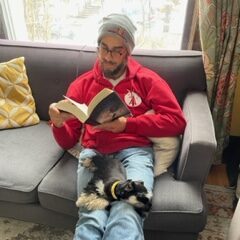
“The Brazilian side is more of a family vine than a family tree.”
With a multi-ethnic family of farmers in which cousins married cousins, my ancestry was a tangled mess. It’s been five years since the curiosity of untangling that vine of ethnic mixing tied to European settler-colonial violence led my wife to give me a 23andMe test for Christmas. My parents were in the room when I got it, by the way. They said nada.
The next spring, I got the results and things didn’t seem too off. I saw my BIPOC-ness broken down (mostly Portuguese with African, Indigenous Brazilian, and some Persian, surprise!), which was cool and the entire point of doing the test. I wasn’t even thinking about my dad’s side. He is a White Nebraskan Euro-settler descendant of Swiss-German and French Alsacian ancestry that was well documented. No mystery there.
But then private messages from some stranger started coming in. I also noticed Dutch was hitting a much higher percentage than anything German or French. The Netherlands was an indirect part of the narrative, just the port they left from to reach the U.S., but it was never a part of the actual family history.
“Wow, we sure share a lot of DNA,” she asked and added, “Do you know how we’re related?”
To my sister’s credit, she was gentle before breaking it down. Once she laid it all out I was dizzy. I called my wife over to read the messages just to make sure I wasn’t tripping. I was shocked and disoriented.
“How is this possible? Why wouldn’t my parents tell me?” I thought.
At some point in Brazil as a toddler, a relative must have said something like: “Nossa, mas (ele) puxa tanto a nosso lado.” (“Wow, he looks so much like our side.”) And thus was born a decades long narrative for my parents. I heard those words all the time.
Having trained in combat sports, the realization of the truth actually felt like getting hit squarely in the face with a cross or falling into a deep choke where you know you’re done. There is no air to breathe. I didn’t know what to do with all of the new information. As a dual northern and southern hemisphere Midwesterner with family on both sides that didn’t talk about feelings, I locked it up. For three years. I had no vocabulary. I had no other people to talk to. I had no base for this.
The late discovery BIPOC DCP experience has been very much a yin-yang of light and darkness, sometimes simultaneously.
I’m also not sure my sister fully thought through the potential consequences of playing the Morpheus role and what “red pilling” me would do with my parents and family.
The late discovery BIPOC DCP experience has been very much a yin-yang of light and darkness, sometimes simultaneously. It was a dark day when I confronted my parents and watched them cower as I revealed the secret they had kept for decades—a secret they were told to keep by so-called “medical professionals.” It was a darker day still watching my mother emotionally spiral, attack, fall back to denial, and shatter our relationship. My parents wanted a child, and after seven years of trying, they took a gamble on an experimental treatment. They got pregnant and didn’t talk to anyone about anything.
There was no required fertility counseling back then and tragically, it’s only recently become part of the process, though it still isn’t mandatory. Therefore, my parents had no clue what the DNA, or I, was carrying. They had to trust grifters in lab coats at a university. In addition, without any counseling on potential sibling groups, they asked no questions on the number of donations or how many siblings I might have floating around.

It deeply frustrates me that my parents wouldn’t have asked basic questions or thought about my potential future health issues. They’re smart people but shame is paralyzing, and predators like a capitalist fertility industry will pounce on it. They were likely told to have sex immediately after the procedure, creating a lie of plausible deniability that they bought into for decades. This is the corruption and harm that comes from the industry. This is why it’s paramount to have required counselors for all parties involved in gamete donations.
On the bright side, I gained a bunch of cool and interesting new friends that are siblings. We are 12 total, including myself, but have our core magnificent seven. Through my sister whose mom actually asked questions during her procedure, we suspect there are at least another 10 out there. I have a spreadsheet to keep track of the details.
While I’m happy we’re building relationships, I would have loved to have met my siblings decades ago. On one hand, it’s not easy building sibling relationships in middle age with the nonnormative family dynamics and life in general. In addition, we are spread out almost coast to coast in the United States. So while video chatting is great, in person is another level, so it probably isn’t surprising my closest relationships are with those geographically closest. On the other hand, skipping kid and teen years and jumping into sibling relationships with adult consciousness has been kind of nice. Expectations are weighed, everyone knows they still need to manage their lives, and we see where the wind blows.
I knew nothing about half of my biological background until 2021. So far I’m fine, but we know there are countless DCP suffering from debilitating diseases, physical and/or mental, that their genes were carrying that no one was looking for until it was too late. Even within our sibling group there are different illnesses that may or may not be tied to the gamete profiteer. It is extremely unethical to withhold information like this from someone. A centralized donor registry is overdue. People like me shouldn’t have to rely on DNA tests to find answers about who they are. Also, it may have allowed us to find one another earlier, though my parents’ denial likely would have got in the way of that.
After meeting other BIPOC DCP and getting integrated and involved in the broader DCP community, I know our community needs more support. Some of us are struggling with late discovery trauma, being BIPOC DCP, not having access to medical information, or simply carrying the weight of being created this way. The BIPOC support group offered by Donor Conceived Community has been an essential part of my healing (along with lots of therapy). Now, I’m hoping to eventually pay it forward and help others in our community while they navigate the complexities and try to find the light.
About the Author

Eric Silva Brenneman is a dad, partner, comrade, musician, music teacher, podcaster, vintner, and student pursuing a masters in counseling.
This post was contributed by a guest author as part of U.S. Donor Conceived Council’s mission to educate on the lived experiences of donor conceived people. Guest posts do not necessarily reflect the views or opinions of USDCC.
Top Image by Allef Vinicius via Unsplash
